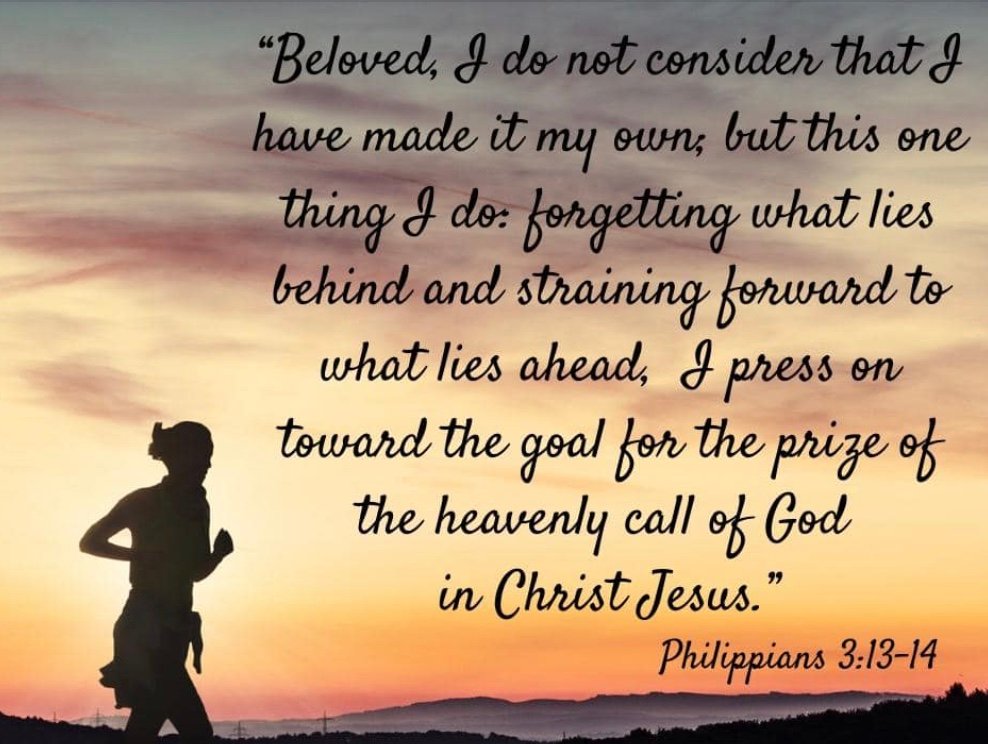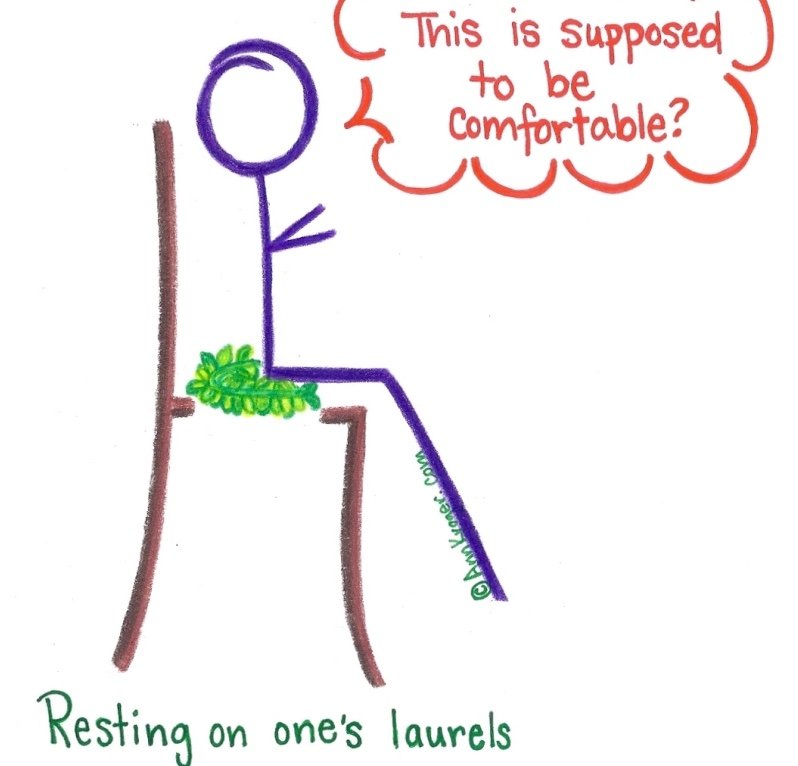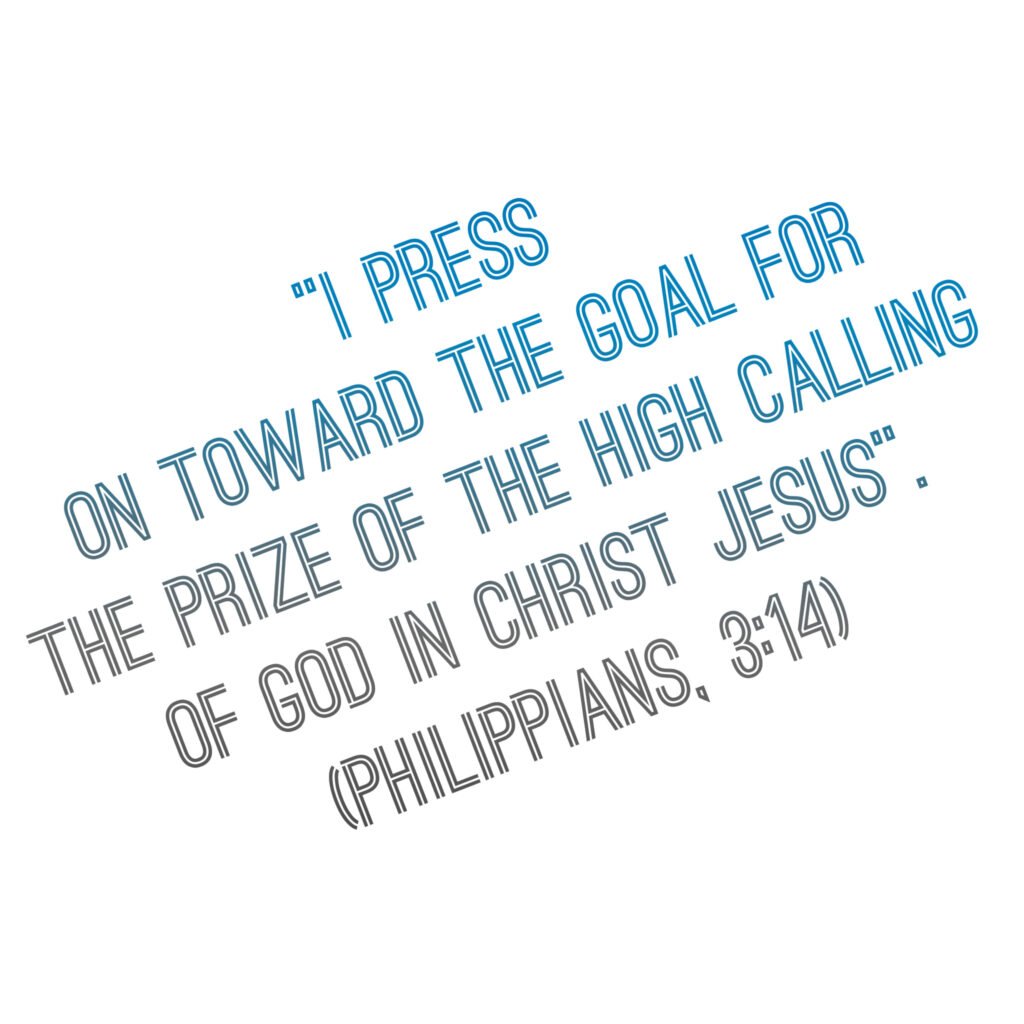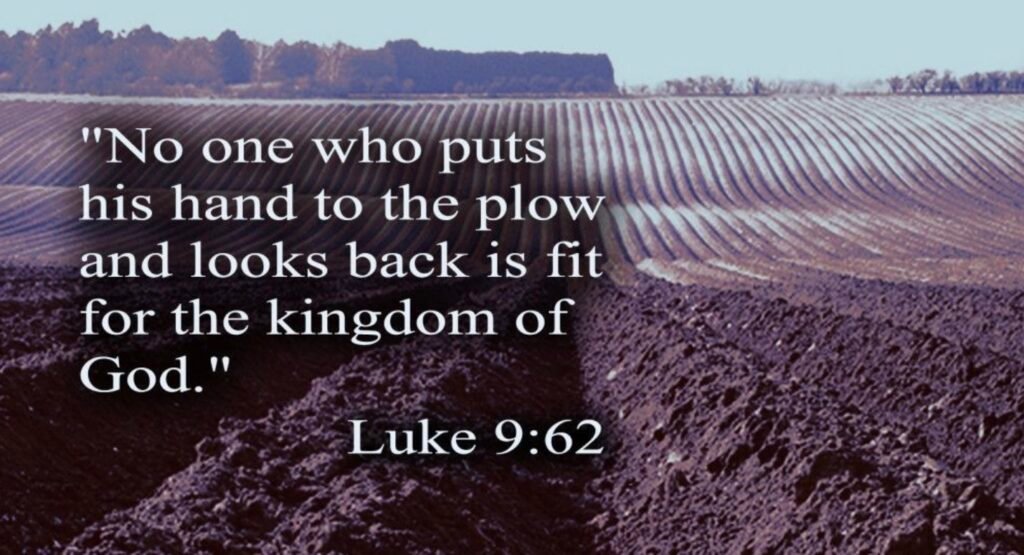Plodding forward in faith is a journey that moves through the past, the present, and into the future. The call to “move forward and not look behind” echoes across both the Old and New Testaments, offering comfort in difficult times, challenging us to grow, and instilling hope as we set our eyes on what lies ahead. This message reminds us that while our past shapes us, we are called to press onward in faith, trusting in God’s promises for today and tomorrow.

Philippians 3:12-14, “Not that I have already obtained all this, or have already arrived at my goal, but I press on to take hold of that for which Christ Jesus took hold of me. 13 Brothers and sisters, I do not consider myself yet to have taken hold of it. But one thing I do: Forgetting what is behind and straining toward what is ahead, 14 I press on toward the goal to win the prize for which God has called me heavenward in Christ Jesus.”
NOW LET’S BREAK IT DOWN!
First let us address who Paul was and why is it so important to know the man?
Before we move forward, it’s essential to consider: Who was Paul, and why does knowing his story matter?
Paul, formerly known as Saul of Tarsus, was a passionate and educated Pharisee who once fiercely opposed the early followers of Jesus. He was notorious for persecuting Christians—driven not by reason, but by blind hatred. His life took a dramatic turn on the road to Damascus when he encountered Christ and was transformed from a persecutor into one of Christianity’s most devoted apostles. Paul’s letters—deeply personal, often written during hardship—form a significant part of the New Testament and offer invaluable insights into faith, perseverance, and grace.
Understanding Paul’s journey from brokenness and opposition to faith and leadership reminds us that no one is beyond the reach of transformation. His struggles and honesty encourage us as we reflect on our own spiritual journeys, teaching that God works through imperfect people for remarkable purposes. Knowing Paul’s story helps us better grasp the weight of his words in Philippians: pressing on, letting go of the past, and embracing the future with hope and trust in God.

Philippians 3:12 “Not that I have already obtained all this, or have already arrived at my goal, but I press on to take hold of that for which Christ Jesus took hold of me.
Paul discusses his experience, noting that he has not achieved his stated goal of being God-like, despite following Christ for 25 years with commitment to his faith (v.12).
Yet God intervened, taking hold of him and bringing about a profound transformation. Even after remarkable spiritual experiences, including visions of heaven, Paul remained humble. He openly acknowledged his own imperfections (v.13), understanding that everyone, himself included, continues to wrestle with sin and faces daily shortcomings.
God had to take hold of him!!
Has God taken hold of you? Has He convicted you? Has He laid hold of you? These are important questions for each of us to consider.
What is the purpose when God lays hold of you and me? When God lays hold of us, it is always for a specific purpose: that His will may be perfected in us, and that He may use us to bless this world and those around us. We cannot travel far with our wagons full of past regret, guilt, anger, etc. God will carry you but He won’t carry your rocks. He forgave you of those. You cannot add beautiful things to your wagon if your wagon is full of ugly things.
The Past
13: “Brothers and sisters, I do not consider myself yet to have taken hold of it. But one thing I do: Forgetting what is behind and straining toward what is ahead,”

The past can be hazardous, both when experienced and when revisited. Dwelling on it may overwhelm your thoughts. Your mind often recalls past mistakes and pain, fueling guilt, frustration, and disappointment.
You can’t move forward burdened by regret, guilt, or anger. Let go of past mistakes—there’s no room for new blessings if you’re holding on to old pain. Release it and make space for what’s good. Think of the beautiful blessing that are waiting because you let it go… just let it go.
Through Jesus Christ, our sins have been removed. We are forgiven for all past wrongs and need not revisit them. Our sins are forgotten, and we should move forward as well.

Lot’s Wife: The Danger of Looking Back
Genesis 19 tells the story of God rescuing Lot and his family from the impending destruction of Sodom and Gomorrah, with a direct command: “Don’t look back or stop anywhere in the valley. Escape to the mountains, or you will be swept away” (Genesis 19:17, ESV).
Despite this warning, Lot’s wife looked back—and instantly became a pillar of salt (Genesis 19:26).
Looking back can cloud your perspective. Lot’s wife, yearning for the place she once called home, allowed her longing to override the command to move forward.
Looking back can obscure our judgment. Lot’s wife, driven by nostalgia for her former home, let her attachment outweigh the clear command to press onward. Yet God was not taking away a paradise; Sodom was far from a place of promise. It was a city marked by corruption, cruelty, and judgment. In turning her gaze backward, Lot’s wife longed not for blessing, but for a life steeped in hardship and wrongdoing.
To remain on the right path, we must fix our gaze ahead, not behind. As Luke later cautions us with solemn gravity, “Remember Lot’s wife!” (Luke 17:32). Her story stands as a timeless reminder: only by looking forward can we walk faithfully toward God’s purposes.
Isaiah 43:18(NIV) “Forget the former things; do not dwell on the past.”
Isaiah offered encouragement to a people longing for restoration. He assured them that God invites His people to let go of past failures and glories alike.
The phrase “do not rest on your laurels” serves as a reminder to move beyond past accomplishments. It is important to let go of previous setbacks and avoid dwelling on former successes.

It’s like the high school quarterback who, decades later at the reunion, is still reliving that single championship-winning play. Their identity remains rooted in that fleeting moment of glory. But what does that reveal? It shows a life stalled—no growth, no willingness to embrace discomfort or reach for new heights. Instead of moving forward, they remain anchored to the past, never daring to strive for something greater.
The Middle! The Present!
We have considered how the past can influence our journey with God’s will. Now, let’s turn our attention to the middle—the present moment, where we truly are living today.

Finding yourself in the middle—in the present moment—can be one of the most difficult places to be. Do you feel stuck there? Do you call out to God, yearning for a sign that your prayers are being heard? Is your mind filled with doubts and fears, focusing only on what’s going wrong, while it seems that the Savior remains silent? If life feels tangled, if faith appears pointless or even foolish, and hope seems distant, you might recognize that you, too, are stuck in the middle.
Do you find yourself in the middle—where life feels a bit like quicksand, pulling you down and holding you back? Yet even here, the middle holds deep purpose in God’s calling for your life. Why is the middle so significant? Because it’s right here, in this in-between space, that faith is tested, takes root, and begins to flourish.
Feeling stuck reminds us that God should remain our highest priority. In those moments, we become aware that God is ultimately in control. The experience of being stuck often compels us to reach forward and move ahead, prompting us to grow. Finally, these times can reveal the areas where our faith is lacking, calling us to trust God even more deeply.
We do not survive the middle by rewriting our story. Whether we attempt to rewrite or endlessly relive our past, neither approach leads us forward or brings us peace. Instead, we survive by anchoring our hope in the One who has already written the perfect ending to our story.
Moving Forward in Faith: Serving God According to His Will
Releasing the Past, Advancing with Purpose, Pressing Onward
Looking Forward: Welcoming the Journey Ahead

Philippians 3:14 “I press on toward the goal to win the prize for which God has called me heavenward in Christ Jesus”
When we talk about “straining forward,” the Greek actually paints a picture of stretching yourself out toward something—reaching as far as you can. So, to “strain forward” really means giving your all, stretching ahead, moving beyond where you are right now.
And then there’s “press on.” That phrase? It literally means to pursue—chasing after your goal with intention and determination.
Luke 9:62 records Jesus’ words: “No one who puts a hand to the plow and looks back is fit for service in the kingdom of God.”
This powerful image underscores the necessity of full devotion. Just as a farmer must look straight ahead to plow straight rows, followers of Christ are called to fix their eyes on Him, resisting the temptation to be drawn back by the past.

How can you work for God in God’s will if you don’t look forward? The journey of faith is often described as a forward movement; our bodies naturally move toward the place where our eyes are directed. God’s plan requires your faith. It is a calling to step into newness, to trust in divine guidance, and to let go of what lies behind.
Imagine this: you set your sights on a tree in the middle of a field and start walking toward it—but your head is down. Can you walk in a straight line toward that tree? It’s extremely difficult, nearly impossible, to stay on course without looking up. You might manage for a short while, but without seeing where you’re headed, it becomes hard to correct your steps and maintain direction. In fact, without visual focus, you might end up covering twice the distance just to reach the same destination. In the same way, God offers us the direction we need to follow His will. Walking with your head down—both physically and spiritually—often symbolizes a lack of faith. Instead, Scripture encourages, “Look straight ahead, and fix your eyes on what lies before you. Mark out a straight path for your feet; stay on the safe path.” (Proverbs 4:25-26, NLT)
Stuck? How do you move forward?
Moving forward begins with understanding the power of Christ, a power we discover through God’s Word. That’s why it is essential to read, study, and apply the Scriptures each day. By doing so, we come to know Christ more deeply, and we gain access to God’s transformative power to help us grow.
For Christians, a relationship with God should never be passive. Rather, it must be active, intentional, and marked by a continual pursuit of God. Actively seeking Him is how we truly move forward.
Believers are expected to respond promptly when called by God. This sense of calling should stir in us a holy urgency—a desire to pursue the new path God has set before us. It means letting go of comfort and familiarity and instead embrace the journey of transformation. We must no longer see ourselves through the lens of our former ways, but as people being shaped for something greater, entrusted with a divine purpose.
The journey forward may not promise ease or guarantee a smooth path, but when we walk with God, we gain the assurance that every hill and valley can be traversed with confidence, faith, and eagerness. Rather than allowing fear or old wounds to hold us back, we press on, trusting that God’s presence will sustain us through both the trials and the triumphs. Each step becomes an act of faith, a declaration that we are not defined by where we have been but by where God is leading us. With every burden surrendered, our hearts grow lighter, and our vision becomes clearer, fixed not on what lies behind, but on the hope and purpose set before us.
Final thoughts!

The song “Let It Go” from Frozen always comes to mind, even if it seems a bit whimsical. In truth, its message beautifully reflects how Christians are called to walk in God’s will: letting go of the past, releasing fears, and not being defined by the opinions of others.
What is God inviting you to release today? Is it your past? Let go of yesterday’s regrets and mistakes. The enemy wants to trap you in cycles of guilt, making you think you can never move forward. But this is not God’s truth—you can move on in Christ. Ask God in prayer to help you focus on Him, not your history.
Are you weighed down by pain, shame, or guilt? Surrender them. God will exchange your burdens for His love, joy, and peace. Jesus didn’t give His life so that you would remain bound by guilt; He came to bring you true, abundant life. As John 10:10 says, “The thief comes only to steal and kill and destroy; I have come that they may have life, and have it to the full.”
Are you holding on to unforgiveness? Bitterness only eats away at your soul and blocks healing in relationships. Choose forgiveness today, with God’s help.
And finally, let go of the need to understand every “why.” God may not always reveal His reasons, but He promises you a peace that transcends understanding. Philippians 4:7 reminds us: “And the peace of God, which surpasses all understanding, will guard your hearts and minds in Christ Jesus.”
Letting go is not weakness—it’s trust. And when you entrust your heart to God, He leads you into freedom and fullness of life.
Yes. LET IT GO. LET GOD HANDLE IT.
Prayer; “Heavenly Father, I come before you with a heart burdened by the past. I confess the hurts, mistakes, and regrets that weigh me down. I ask for your forgiveness and healing, that you would mend the brokenness and release me from the chains of the past. The disappointments, the heartaches, and the failures have left an imprint on my heart. Help me to let go of what no longer serves me and to embrace the new things you have in store for me. I trust in your grace and mercy to guide me forward, to fill me with your peace, and to lead me into a future filled with hope and purpose. I declare that no past hurt has the power to define my future. You have called me to a life of freedom and joy, and I choose to walk in that freedom. In Jesus’ name, Amen





